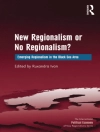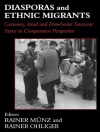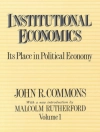‘Rigorous, impassioned and urgent’ – Ash Sarkar
We are in a moment of profound overlapping crises. The landscape of politics and entitlement is being rapidly remade. As movements against colonial legacies and state violence coincide with the rise of authoritarian regimes, it is the lens of racism, and the politics of race, that offers the sharpest focus.
In Empire’s Endgame, eight leading scholars make a powerful intervention in debates around racial capitalism and political crisis in Britain. While the ‘hostile environment’ policy and Brexit referendum have thrown the centrality of race into sharp relief, discussions of racism have too often focused on individual behaviours. Foregrounding instead the wider political and economic context, the authors trace the ways in which the legacies of empire have been reshaped by global capitalism, the digital environment and the instability of the nation-state.
Engaging with movements such as Black Lives Matter and Rhodes Must Fall, Empire’s Endgame offers both an original perspective on race, media, the state and criminalisation, and a political vision that includes rather than expels in the face of crisis.
Jadual kandungan
Series Preface
Preface
Introduction: Racialised Mythologies in Times of Neglect, Cruelty and Expulsion
PART 1 – RACIALISING THE CRISIS
1. Windrush
2. ‘Knife Crime’: Prevention and Order
3. Gang Land
PART 2 – THE PERSISTENCE OF NATIONALISM
4. Nationalist Convulsions
5. Progressive Patriotism
6. The Limits of Representation
PART 3 – STATE PATRIARCH
7. Our Heart Belongs to Daddy
8. ‘Pakistani Grooming Gangs’
9. (Powerful) Men Behaving Badly
PART 4 – SEND IN THE ARMY
10. Longing for Authority
11. Militarisation on the Mainland
12. Zero-sum Game
PART 5 – WHAT NOW?
13. Covid-19: A Real Crisis
14. Shared Grief, Hope and Resistance
Notes
Index
Mengenai Pengarang
Luke de Noronha is lecturer at the Sarah Parker Remond Centre (UCL) and author of Deporting Black Britons: Portraits of Deportation to Jamaica (MUP, 2020).












